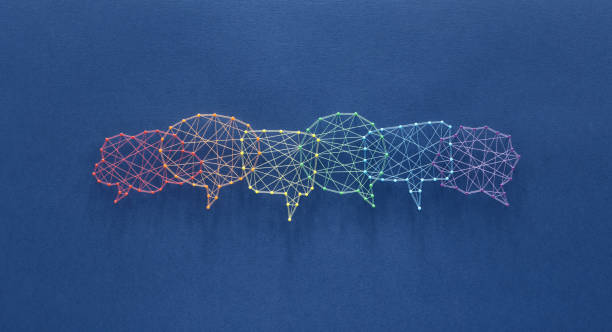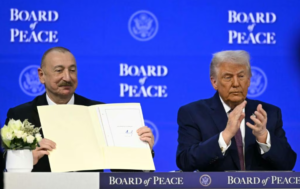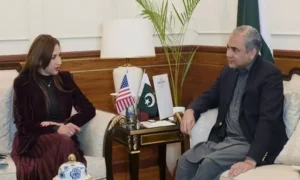Hybrid Political Dialogue

In recent months, Pakistan has witnessed a renewed focus on political dialogue, particularly in the context of discussions between the ruling coalition and Pakistan Tehreek-e-Insaf (PTI). These engagements, aimed at addressing the country’s escalating political polarization and economic crises, highlight the significance of dialogue as a mechanism for resolving conflicts and fostering cooperation. However, the efficacy of such efforts depends not only on the sincerity of the parties involved but also on the structural conditions and historical precedents that shape political dialogue in Pakistan. Understanding this context requires an exploration of the country’s political history, the evolution of dialogue as a democratic norm, and the broader ideological frameworks that influence such interactions. The concept of political dialogue in Pakistan has always been fraught with challenges. From the early days of independence, political dialogue has often been overshadowed by power struggles and institutional imbalances.
The legacy of colonial rule left behind a state apparatus designed for command and control rather than participatory governance. This structural unevenness has continued to impede the development of a deliberative democratic culture. Political dialogue, in its true sense, requires an equal playing field where all participants have the freedom to express their views, engage in critical thinking, and propose innovative solutions. However, in an uneven society, such as Pakistan, where economic disparities and power asymmetries persist, dialogue often becomes a tool for perpetuating hegemonic interests rather than fostering genuine collaboration.
A significant milestone in Pakistan’s political history was the Charter of Democracy (CoD) signed in 2006 by the leaders of Pakistan Muslim League-Nawaz (PML-N) and Pakistan Peoples Party (PPP). This document symbolized a commitment to democratic principles and underscored the importance of dialogue in resolving political disputes. The CoD was a reaction to decades of authoritarian rule and military interventions, which had stifled democratic growth and marginalized civilian leadership. While the charter represented a progressive step, its implementation faced numerous challenges, as subsequent political developments revealed the persistence of mistrust and power struggles between political actors.
The history of political dialogue in Pakistan is also marked by episodes of suppression of thought and ideological control. During authoritarian regimes, dissenting voices were silenced, and dialogue was replaced by decrees and censorship. This suppression undermined critical thinking and innovation, both of which are essential for a liberal democratic society. Liberalism, with its emphasis on individual freedom, freedom of expression, and equality, provides an ideological framework for meaningful dialogue. It fosters an environment where diverse perspectives can coexist, leading to creative solutions to complex problems. However, in Pakistan, the interplay of liberalism and constitutionalism has often been overshadowed by power politics and the lack of institutional reforms needed to support these ideals.
Globally, political dialogue has been a cornerstone of liberal democratic norms, serving as a mechanism for conflict resolution and consensus-building. For instance, in South Africa, the negotiations between the apartheid regime and the African National Congress (ANC) in the early 1990s exemplify how dialogue can lead to transformative political change. Similarly, the Good Friday Agreement in Northern Ireland demonstrated the potential of dialogue to resolve long-standing sectarian conflicts. However, in postcolonial societies like Pakistan, the nature of political dialogue is often constrained by the legacies of colonialism, which entrenched structural inequalities and centralized power.
Postcolonial theorists argue that these societies face unique challenges in fostering political dialogue. The subaltern—marginalized groups excluded from political and economic power—often find their voices suppressed in political discourse. This exclusion perpetuates a culture of command and control, where dialogue becomes a performative exercise rather than a substantive process of engagement. Marxist perspectives further highlight how political dialogue in capitalist societies, including Pakistan, is shaped by class dynamics. The bourgeoisie, with its control over economic and ideological resources, often dominates the narrative, limiting the scope for transformative dialogue that challenges the status quo.
The concept of hybrid political dialogue in Pakistan can be understood in the context of its hybrid political system, which combines elements of democracy and authoritarianism. This system, characterized by frequent military interventions and weak civilian institutions, creates a paradoxical environment for dialogue. While democratic processes such as elections and parliamentary debates exist, they are often undermined by undemocratic practices, such as coercion, manipulation, and censorship. This hybrid nature of the political system limits the potential for genuine dialogue, which requires transparency, accountability, and mutual respect among participants.
Neoliberalism, with its emphasis on market-driven policies and privatization, has also influenced the nature of political dialogue in Pakistan. While neoliberalism promotes competition and innovation, it often exacerbates inequalities and undermines social cohesion. In such an environment, political dialogue tends to focus on economic agendas that prioritize elite interests over the needs of marginalized communities. This dynamic further limits the scope for inclusive and creative dialogue that addresses the root causes of social and economic disparities. The suppression of thoughts and ideas, often justified in the name of national security or political stability, poses a significant barrier to meaningful political dialogue. Hegemonic and ideological control—whether through state institutions, media, or education—stifles dissent and discourages critical thinking. This suppression not only limits individual freedoms but also undermines the collective capacity of society to innovate and adapt to changing circumstances. In contrast, a deliberative democratic setup, which encourages open dialogue and participatory decision-making, provides a more conducive environment for fostering innovation and creativity.
Examples from around the world illustrate the transformative potential of political dialogue in diverse contexts. In authoritarian regimes, such as China, political dialogue is often limited to elite circles, with little input from broader society. However, even within these constraints, spaces for dialogue have emerged, such as local governance reforms and public consultations on specific issues. In contrast, liberal democracies like the United States and the United Kingdom have institutionalized mechanisms for dialogue, such as public hearings, town hall meetings, and participatory budgeting. These practices not only enhance accountability but also empower citizens to contribute to policymaking processes.
The role of political dialogue in fostering innovation and critical thinking is particularly relevant in the context of Pakistan’s youth population. With a significant portion of the population under the age of 30, there is immense potential for harnessing their creativity and energy through inclusive and participatory dialogue. However, this requires addressing structural barriers such as unequal access to education, economic opportunities, and political representation. Creating a culture of dialogue that values diversity and encourages critical engagement can help transform Pakistan’s political landscape and pave the way for a more equitable and prosperous society.
The interplay between dialogue and subaltern perspectives highlights the importance of inclusivity in political discourse. Subaltern groups, often excluded from mainstream politics, bring unique insights and experiences that can enrich the dialogue process. Recognizing and addressing the barriers faced by these groups is essential for creating a more inclusive and democratic society. This includes addressing issues such as gender inequality, ethnic discrimination, and regional disparities, which often limit the participation of marginalized communities in political dialogue.Hybrid political dialogue represents both a challenge and an opportunity for Pakistan. While the country’s hybrid political system poses significant constraints, it also provides a space for innovation and critical engagement. To realize the full potential of political dialogue, it is essential to foster an environment of openness, collaboration, and mutual respect. This requires addressing structural inequalities, promoting economic integration, and ensuring equal opportunities for all social groups. By embracing the principles of unity, diversity, and coexistence, Pakistan can create a deliberative democratic framework that not only resolves political conflicts but also builds a knowledge-based society capable of addressing the complex challenges of the 21st century.


